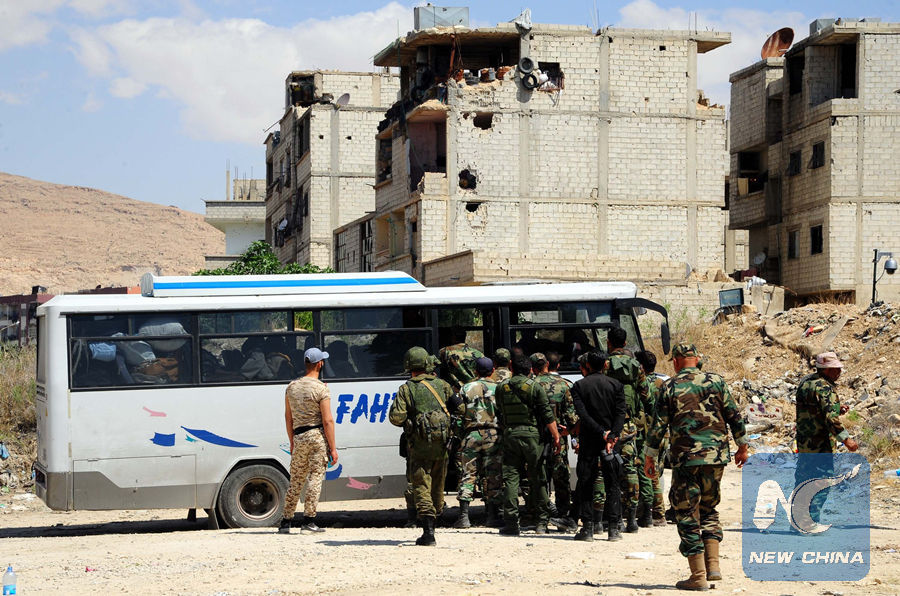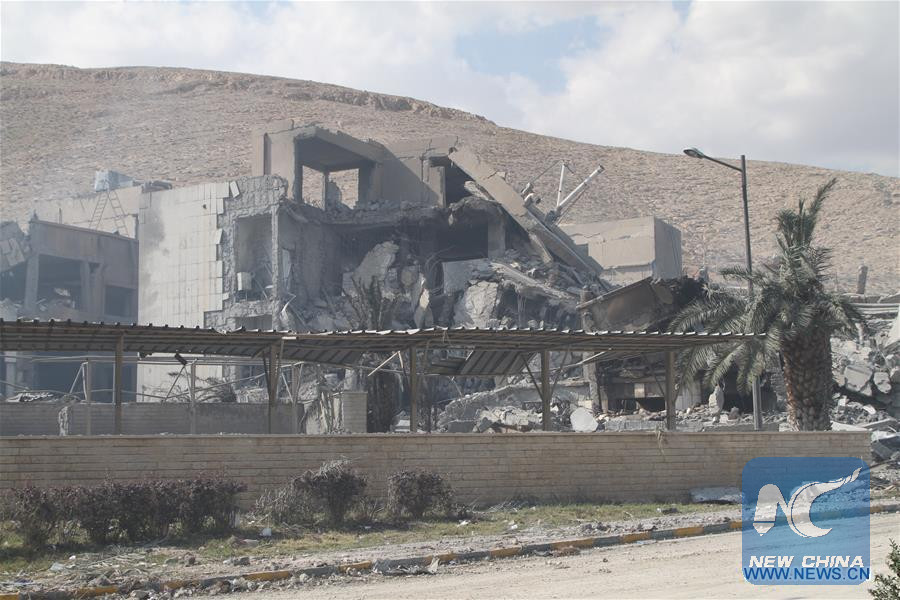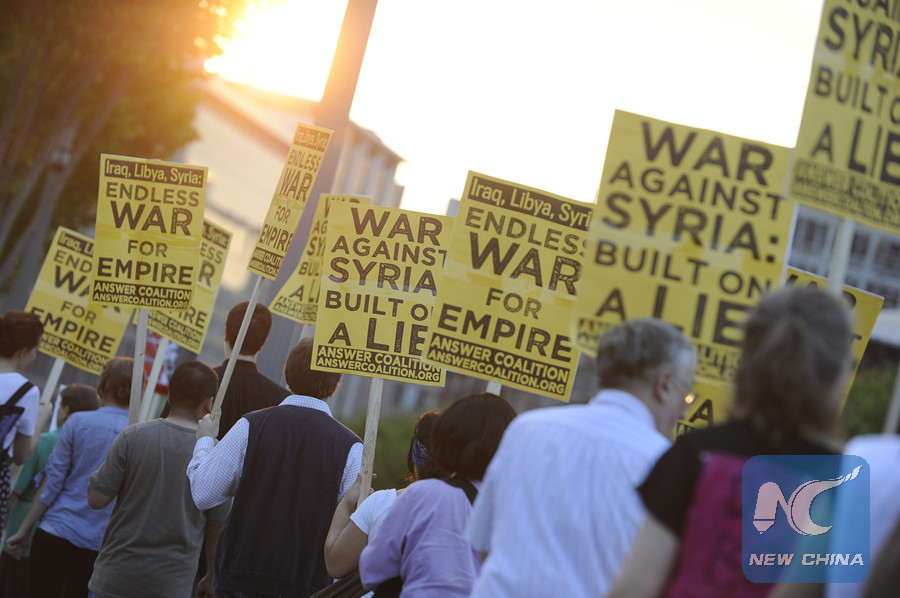
A bus carrying the rebels and their families from Douma district arrives at the Wafideen area, northeast of the capital Damascus, Syria, on April 14, 2018. Around 93 buses with hundreds of Islam Army militants and their families onboard prepared on Friday to evacuate Damascus' eastern Douma district, amid reports of the arrival of the chemical weapons investigators on Saturday to look into allegations of toxic gas use in Douma. (Xinhua/Ammar Safarjalani)
CAIRO, April 15 (Xinhua) -- Three Western countries on Saturday once again demonstrated trigger-happy foreign policy by launching airstrikes on Syria based on mere allegations about Syria's use of chemical weapons.
In cooperation with Britain and France, the United States attacked Syrian military facilities, calling it a response to the alleged gas attack by Syrian troops in the rebel-held town of Douma near Syrian capital Damascus on April 7.
The Syrian government has strongly denied the allegation, which has not been independently investigated and verified. So far, the United States and its allies have not provided any hard evidence to hold Damascus responsible for the alleged gas attack.
The U.S.-led military action against Syria will remind people of a similar attack a year ago, which was also launched under the pretext of punishing the Syrian government for the alleged use of chemical weapons.
The use of chemical weapons should certainly be condemned and dealt with resolutely by the international community. But thorough investigation should precede any punishment and action, especially military ones, to hold those responsible to account. Such actions should first be fully authorized by the United Ntions.
Such unauthorized use of force, without a thorough investigation, not only violates the territorial integrity of a sovereign country, but also escalates the tensions in war-torn Syria as well as the Middle East region as a whole.

Photo taken on April 14, 2018 shows relics of the Scientific Research Center in the Barzeh neigborhood of northeast of Damascus, after the United States, Britain and France carried out a wave of joint airstrikes on Syrian military facilities. The U.S., along with its allies Britain and France, launched missile strikes on Syrian military positions earlier on Saturday. (Xinhua/Monsef Memari)
The attack came despite warnings from Russia and Iran, which demanded a proper investigation by international inspectors. Consequently, it will intensify the animosity between the United States and Russia and Iran.
History shows the dangerous consequences of Western countries' military interventionist policy which has wreaked havoc time and again in the volatile Middle East, from Iraq to Syria.
The invasion of Iraq in 2003 and the airstrikes on Libya in 2011 both failed to ensure peace and further destabilized the Middle East and resulted in millions of civilians being killed, wounded and displaced.
Ironically, the United States itself, as well as many of its European allies including France and Britain, have paid a dear price for their military moves in the Middle East, as illustrated by the costly war against terrorism at home and abroad. U.S.-led military strikes against Middle East countries have sown destruction and hatred, forming a hotbed for the rise of terrorism that has eventually spread to Western countries.

Activists held placards during a demonstration against the military strike on Syria in front of the White House in Washington D.C., capital of the United States, Aug. 29, 2013. Amid signs the U.S. was ready to attack Syria, 140 members of the U.S. House of Representatives had signed onto a letter, demanding then President Barack Obama get authorization of Congress before going ahead with the military strike. (Xinhua/Zhang Jun)
Under the UN Charter, any dispute should be settled through dialogue, negotiation and compromise, and all members should refrain from using force against another sovereign nation.
If the United States and its Western allies really want to address the rising dangers of terrorism and the worsening situation in the Middle East, they should first discard their trigger-happy foreign policy in the region and any other parts of the world.

